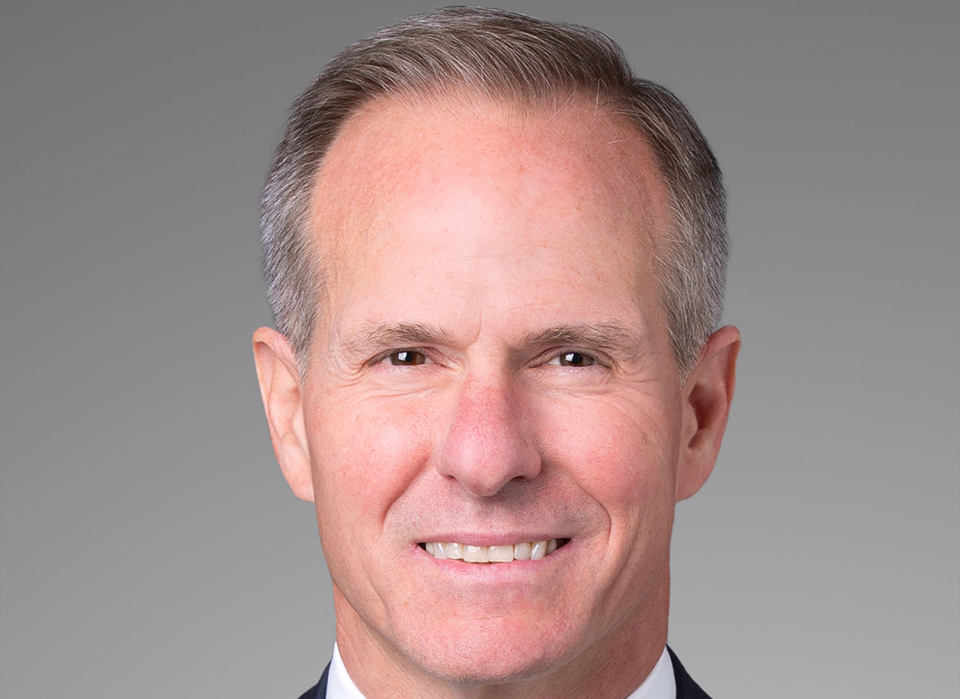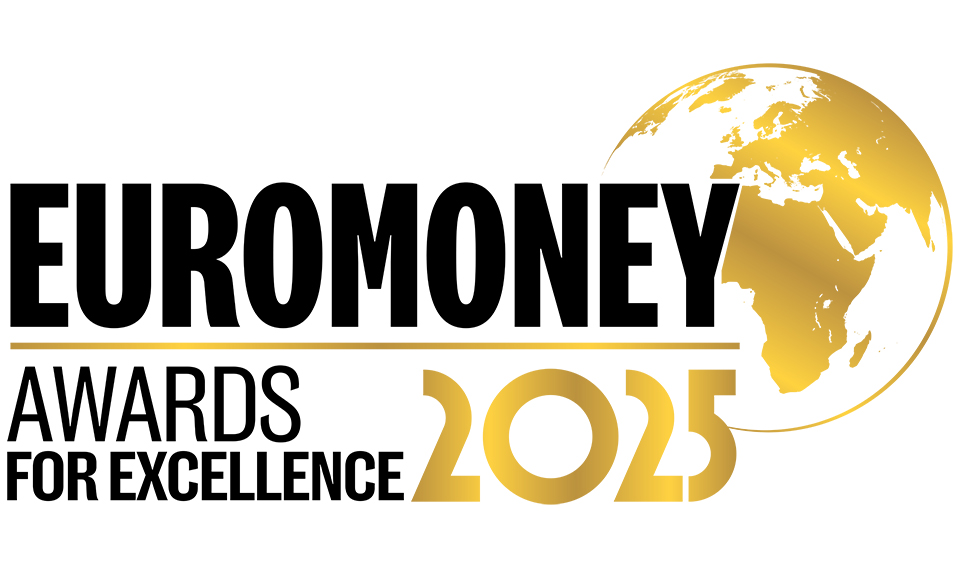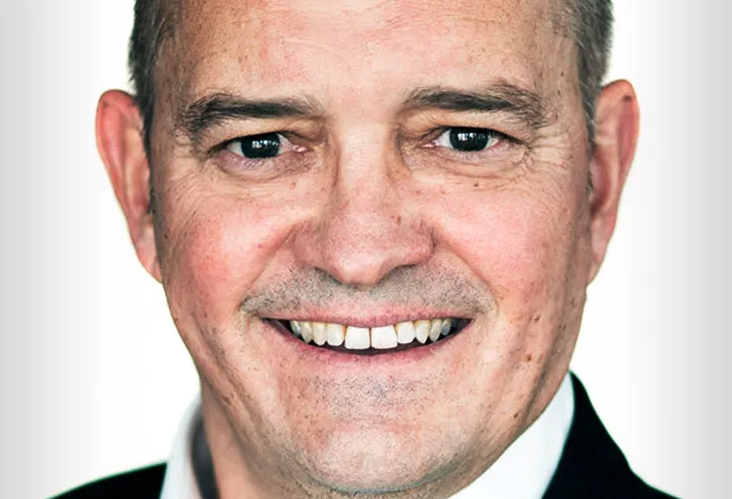With nearly $370 billion in deposits, $7.9 trillion in client assets across its wealth and investment management arm and a tier-1 ratio of almost 16%, Morgan Stanley is one of the best capitalised banks in the business. That has not only brought the bank stability but, crucially, allowed it to grow its book when other banks had to draw back.
Since promoting Eli Gross and Simon Smith as co-global investment banking heads in 2022, the bank’s IB team has steered through some stormy waters. “In a downturn, you cannot squeeze blood from a stone,” admitted Gross to Euromoney in 2023, when the bank last took the award.
Since then, however, Morgan Stanley has hired in, promoted, consolidated and expanded sector expertise under new chief executive Ted Pick. In 2024, it quietly reorganised its investment banking team to prepare the firm for an expected deal rush: adding Mo Assomull to the top trio alongside Gross and Smith, while Evan Damast and Henrik Gobel became co-heads of global capital markets, creating a formidable leadership line up.
Strength in numbers
And it has worked – last year saw some of the best results in the bank’s history. Profits more than doubled in the fourth quarter, with investment banking revenues rising 25% on the back of a surge in dealmaking and a strong equity trading performance. Annual revenues reached $61.8 billion with net income of $13.4 billion, and the bank’s strong capital base allowed it to support large-scale client needs while weathering macroeconomic volatility. Across its M&A, equity capital markets, debt capital markets and particularly its financial institutions group, the bank emerged as the standout player in a strong field.
To achieve deals of this volume and magnitude, scaling up in terms of talent has been crucial
“The firm is in fantastic shape,” says Gross. “It’s not just the brand and the stability of the institution from a capital and a leadership transition point of view, it’s also the performance of the overall franchise in banking and markets, as well as in asset and wealth management. Integrating wealth management and investment banking is a growing priority. It’s matching a best-in-class investment bank with a best-in-class wealth manager.”
M&A dominance
At the heart of the firm’s success in 2024 was its ability to deliver high-impact outcomes for clients during an uneven recovery year. “We fundamentally believe M&A and strategic advice are the tip of our spear,” explains Tom Miles, global co-head of M&A. “When clients face unprecedented decisions, they look to us – not just for execution but for partnership in strategy.”

That approach saw Morgan Stanley take a market-leading position for public M&A transactions during 2024, with 309 deals valued at approximately $633 billion during the review period, representing a 26% global market share.
A standout deal was ExxonMobil’s $64.5 billion acquisition of Pioneer Natural Resources, in which Morgan Stanley advised the target as part of a broader push into energy M&A. Other landmark mandates included advising Roark Capital on its acquisition of Subway, which involved not just M&A advice but also a first-of-its-kind $3.35 billion securitisation facility.
The bank’s financial sponsor and private equity coverage was similarly dominant. Morgan Stanley advised on 127 transactions involving financial sponsors and was instrumental in several marquee take-privates. “We take pride in being a firm that sponsors trust – not only to sell their assets but to help them make transformational investments,” notes John Collins, global co-head of M&A for Morgan Stanley’s investment banking division.
ECM leadership
On the equity side, Morgan Stanley maintained its global leadership, ending 2024 ranked number one globally, in the US and Asia. The bank played a pivotal role in restoring confidence to the IPO market after two difficult years.

A defining transaction was the $2.6 billion IPO of Galderma, one of the first jumbo sponsor-backed deals to price successfully in years. “We were proud to bring it to market after holding the mandate for three years – timing it precisely when investor appetite returned,” said Martin Thorneycroft, global co-head of ECM. “It was a true test of our judgment and execution, and it delivered strongly for all parties involved.”
The bank held key syndicate roles on Lineage Logistics’ $5.1 billion IPO (a firm co-founded by former Morgan Stanley bankers), JD.com’s $3.6 billion secondary block sale on behalf of Walmart, and the $12.4 billion Saudi Aramco follow-on. “2024 was the year we helped reopen the IPO market,” says Eddie Molloy, global co-head of ECM. “Our ability to lead in size and complexity – especially when the stakes were highest – set us apart.”
Breadth in debt

DCM was another engine of Morgan Stanley’s dominance over the year, and was the second busiest year on record for the bank. The bank led key transactions for Uber, Netflix, AbbVie and BlackRock, and was number one in US bank financial institutions issuance, including repeat mandates from names such as Capital One and PNC, while its $15 billion bond for AbbVie and $10 billion bridge for Verizon underscored its strength in strategic event-driven financing.
On the tech side – a sector in which it has long been a leader – the bank made waves as lead bookrunner and buyback agent for Alibaba’s $5 billion dual-currency convertible bond. The first appearance in the dollar bond market since 2021 for China’s largest e-commerce company, the deal was not only the largest Asia-Pacific corporate issuance of the year but also the biggest tech convertible bond ever.
A league of their own
To achieve deals of this volume and magnitude, scaling up in terms of talent has been crucial. “Our brand and platform are huge magnets for talented bankers,” says Gross. “Morgan Stanley offers an unmatched opportunity to work on landmark transactions across regions, industries and products.”
Part of that includes uniting industry and product expertise across a worldwide team. Teams working across regions and products led six of the top 10 largest non-US issuers in the US market, for example, as well as dominating additional tier-1 capital issuance in Europe with a 12% market share. “Execution excellence is critical, but very often it’s the expertise that makes the difference,” stresses Gross.
As capital markets continue to face volatility, Morgan Stanley has emerged not only as the adviser of choice in complex and high-stakes scenarios but as a trusted partner driving the next era of global finance. Its differentiated model, deep pockets and top-tier execution made it a clear winner for this year’s award.
Dan Simkowitz, co-president
Morgan Stanley’s recognition as the world’s best investment bank is the culmination of disciplined strategy, a tightly integrated business model and decades of global expansion. According to Dan Simkowitz, co-president and head of the institutional securities group, the award reflects the results of a clear and focused strategy, executed with precision across the firm’s advisory, capital markets and wealth businesses.

“Our leadership team is fully aligned around our strategy – which is very straightforward and powerful,” says Simkowitz. “We advise and help clients raise, manage and allocate capital – and we do this around the world.”
That global capability has become one of Morgan Stanley’s key differentiators. While many investment banks claim international reach, few can match the firm’s depth across both public and private markets or its cross-asset capabilities.
“We made the strategic decision to be global across products and businesses and multi-asset across both public and private markets,” Simkowitz says. “There are very few investment banks that have global capabilities like ours.”
He credits former chief executive James Gorman and current CEO Ted Pick for building a seamlessly integrated investment bank – where underwriting, advisory and trading work in lockstep. This tight integration, combined with a culture centred on trust and long-term relationships, has enabled Morgan Stanley to deliver in even the most complex market conditions.
“In my 34-year career, these are the most interesting market movements and crosscurrents I have seen,” Simkowitz notes. “You have market dispersion across asset classes and regions. Morgan Stanley is exceptionally well positioned to navigate this cycle, supported by our global footprint and the strength of our integrated firm.”
Despite geopolitical and macroeconomic volatility, Morgan Stanley’s advisory pipelines remain robust, driven by financial sponsors and corporates with long-term plans. “While some transactions may shift in timing due to macro uncertainty, the fundamental demand for strategic advice remains intact,” he explains.
Major advantage
On the capital markets side, activity is returning – if unevenly. “Capital markets are showing early signs of a sustained recovery, albeit episodic and window driven,” he says. “There is a significant IPO backlog of quality assets and, assuming markets remain constructive, activity should continue to pick up.”
A major advantage for Morgan Stanley is its proximity to capital at scale. With $7.7 trillion in combined client assets across its wealth and asset management divisions, the firm can bridge institutional and retail capital like few others. “Across Wealth and Asset Management, we continue to scale our capabilities by delivering the full firm to clients,” Simkowitz says.
That connectivity – between businesses, geographies and clients – is something Simkowitz reinforces personally. “Since January I have met with over 200 clients across 12 countries,” he shared. “There is no better way to build trust than meeting face to face and having an in-person conversation.”
Simkowitz also stresses the importance of differentiated insight. “Whether it’s an economist, a trader, a financial adviser or a software developer pioneering with AI, it’s our diversity of perspectives and breadth of capabilities that help us win.”
Looking ahead, he sees momentum building across structured credit, equity-linked issuance and customised solutions – particularly in markets like Japan, India, Brazil, the Middle East and Germany. “We are investing in global markets with purpose,” he says.
Artificial intelligence is another area of strategic focus – both for clients and within the firm itself. “AI is the most transformational force we are engaging with today,” says Simkowitz. “We are not only advising the companies shaping this space – we are early adopters ourselves.”
Mirrored evolution
Simkowitz’s personal journey mirrors the bank’s evolution. With over three decades at Morgan Stanley and leadership roles in Tokyo, Hong Kong and New York, he has helped steer some of its most defining moves, including the acquisitions of E*TRADE and Eaton Vance.
“Those deals were transformational,” he says. “They significantly expanded our reach across the wealth continuum and positioned us for long-term growth in alternatives and private markets.”
At its core, however, the bank’s success still comes down to people and culture. As Simkowitz puts it: “Rigour, humility and partnership are deeply embedded in how we operate.”





